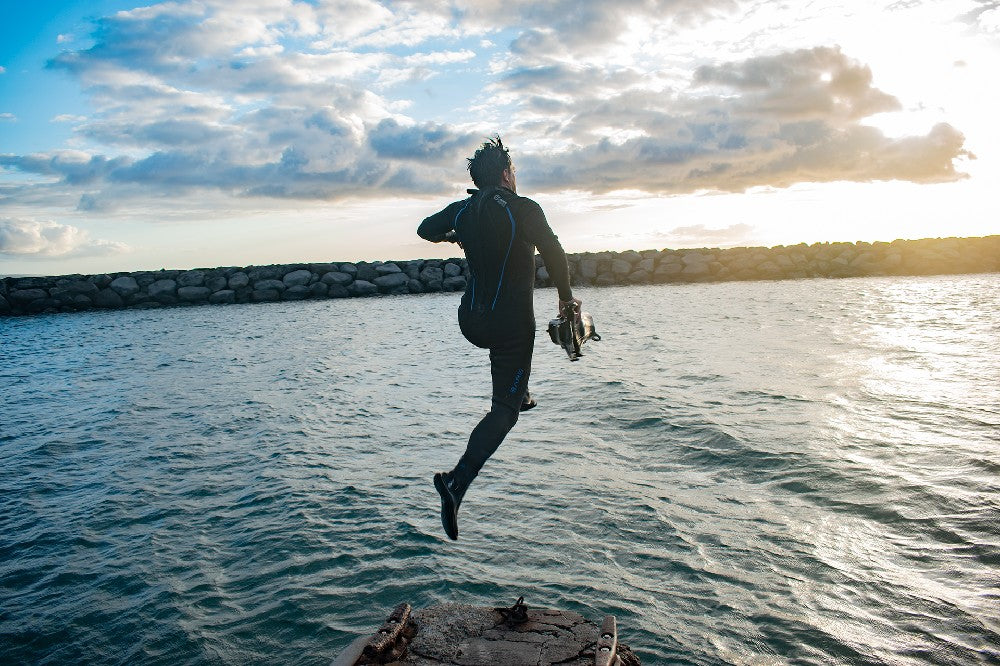Wetsuits are a crucial piece of gear for water enthusiasts, providing insulation and protection against the elements. Selecting the right wetsuit thickness is paramount to ensure comfort, safety, and optimal performance. In this comprehensive guide, we'll delve into the various wetsuit thickness options and the factors influencing your choice.
-
Understanding Wetsuit Thickness:
Wetsuits are designed to keep your body warm by trapping a thin layer of water between the suit and your skin. The thickness of the neoprene material plays a crucial role in determining the suit's insulating properties. Generally measured in millimeters (mm), wetsuit thickness varies to accommodate different water temperatures.
-
7mm Wetsuit: Conquering Frigid Waters:
For the intrepid souls venturing into icy waters below 50°F (10°C), the 7mm wetsuit is the go-to choice. This thick suit provides maximum insulation, keeping the body warm even in the harshest conditions. Divers exploring polar regions or engaging in winter water activities benefit from the exceptional warmth offered by a 7mm wetsuit.
-
5mm Wetsuit: Tackling Cool Conditions:
As temperatures hover between 50-60°F (10-15°C), a 5mm wetsuit becomes the ideal companion. This thickness strikes a balance between insulation and mobility, making it suitable for cooler seasons or regions with moderate cold temperatures. Divers and surfers in spring or fall conditions often opt for the versatility of a 5mm wetsuit.
-
3mm Wetsuit: Versatility for Moderate Temperatures:
The 3mm wetsuit is a versatile choice for water temperatures ranging from 60-70°F (15-21°C). Offering moderate insulation, it is well-suited for spring or fall conditions where the water is neither too cold nor too warm. Its flexibility makes it a popular option for various water sports, allowing for ease of movement without compromising thermal comfort.
-
1.5mm Wetsuit: Embracing Warm Waters:
As the mercury rises between 70-75°F (21-24°C), a 1.5mm wetsuit comes into play. Designed for warm water conditions, this thinner suit ensures comfort without overheating. Water enthusiasts in tropical climates or during the summer months often prefer the lightweight and breathable nature of a 1.5mm wetsuit.
-
0.5mm Wetsuit (Spring Suit): Savoring Tropical Bliss:
In water temperatures of 75°F (24°C) and above, the 0.5mm wetsuit, also known as a spring suit, takes center stage. This ultra-thin option provides minimal insulation, making it perfect for tropical climates and scorching summer days. Its short-sleeved and short-legged design allows for maximum freedom of movement while still offering a layer of protection.
-
Factors Influencing Your Choice:
While water temperature is a primary factor, several other considerations should guide your wetsuit thickness choice:
-
Individual Tolerance: People vary in their sensitivity to cold. Consider your personal tolerance and adjust the thickness accordingly.
-
Duration of Exposure: Longer sessions in the water may necessitate a thicker wetsuit for sustained warmth.
-
Air and Wind Conditions: Wind and air temperature can affect how cold you feel in the water. Factor in these conditions when selecting your wetsuit.
-
Specific Water Activities: The type of water activity, whether it's diving, surfing, or snorkeling, can impact your wetsuit needs. Certain activities may require more flexibility or durability.
-
-
Consulting Professionals:
Choosing the right wetsuit thickness is a nuanced decision, and seeking advice from professionals at dive shops or water sports stores is invaluable. These experts can provide personalized recommendations based on your unique requirements and the specific conditions you'll be facing.
Conclusion:
Selecting the appropriate wetsuit thickness is crucial for an enjoyable and safe water experience. By understanding the temperature ranges and considering individual factors, you can confidently choose a wetsuit that keeps you comfortable in any aquatic adventure. Whether you're braving freezing polar waters or basking in tropical paradise, the right wetsuit is your key to unlocking the full potential of water exploration.

